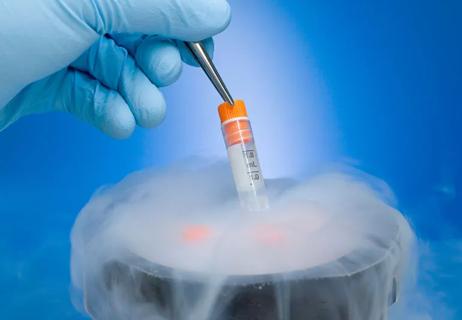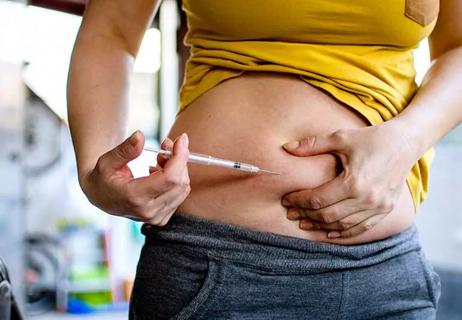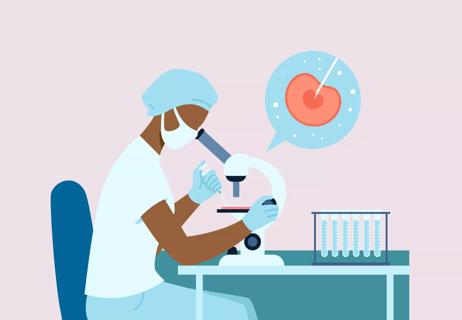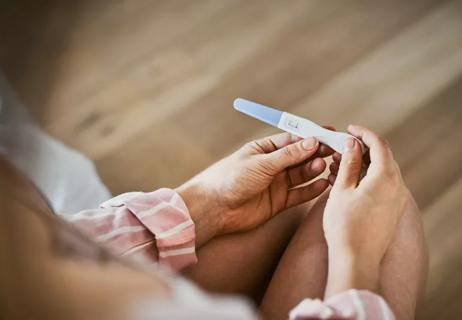Common causes and when to seek help

After having your first baby, you might think that getting pregnant a second will happen just as easily, but that’s not always true.
Advertisement
Cleveland Clinic is a non-profit academic medical center. Advertising on our site helps support our mission. We do not endorse non-Cleveland Clinic products or services. Policy
While many couples have no problem conceiving the second time around, millions of couples struggle with secondary infertility, according to the National Center for Health Statistics. This includes couples who experienced infertility but eventually had a successful pregnancy.
Secondary infertility is the inability to conceive or carry a pregnancy following the delivery of a child. While it isn’t uncommon, the good news is that you’re more likely to have a successful second pregnancy if you already have a child, says Ob/Gyn Laura Detti, MD.
If you’re struggling to conceive but still hoping for another child, here are six possible reasons you may have a problem getting pregnant again — and when you should seek help.
It’s probably no surprise that one of the most important factors that influences a woman’s chance of getting pregnant is age. Changes in hormones and risk for certain diseases also increase as we age, and both can impact fertility, she says.
“Woman in their mid- to late-30s and older are more likely to experience secondary infertility since eggs are lost as we age,” says Dr. Detti.
But if you’re in your mid-30s and are still waiting for a second child, don’t despair: “Just because it might take you longer to get pregnant doesn’t mean you won’t get pregnant again — it just means you have less time to work with,” she says.
Advertisement
You likely know that age, health or medications sometimes affect sperm quality or quantity. But it surprises many men to learn that some common practices can decrease sperm production. They include:
“The testes are outside of the body for a reason,” Dr. Detti says. “If they are too warm, either from tight clothing (think biker shorts) or use of electronics, it can affect sperm counts.”
Polycystic ovary syndrome (PCOS), a hormonal imbalance that can disrupt ovulation, is a common cause of secondary (and primary) infertility. If your periods are irregular or absent, talk with your doctor to see if you might have PCOS.
In addition to PCOS, abnormalities caused by previous surgeries or an infection also may cause infertility.
In women, added pounds can contribute to insulin resistance and elevated testosterone levels, which can stifle ovulation. Also, implantation rates are lower for those who are overweight (or underweight) than for those at a healthy weight.
For men, excess weight can increase estrogen levels, leading to lower sperm counts.
Drinking too much alcohol can cause problems with conception.
“Moderate to heavy alcohol consumption in women (more than two drinks per day or more than seven drinks per week) increases the time it takes to conceive and reduces your chances of delivering a healthy baby,” says Dr. Detti.
Men who are trying to conceive can also benefit from drinking less alcohol. Moderate to heavy consumption can disrupt hormones and hinder sperm production.
While it’s no surprise that smoking isn’t good for you, you might not know that smoking can wreak havoc on your fertility, too. Women who smoke are more likely to experience infertility. Smoking can damage eggs and cause ovulation problems, Dr. Detti says.
Men aren’t off the hook either. Research shows that smoking may damage sperm DNA.
If you are trying to get pregnant again, try to relax and not worry too much — at least at first.
However, if you have been trying for a year and still haven’t conceived, talk to your Ob/Gyn or fertility specialist. And if you’re over age 36, consider talking with your doctor sooner — once you have tried for three or four menstrual cycles without success, Dr. Detti says.
Advertisement

Sign up for our Health Essentials emails for expert guidance on nutrition, fitness, sleep, skin care and more.
Learn more about our editorial process.
Advertisement

These consumer-friendly devices can’t assess male fertility nearly as well as a fertility specialist can

Oocyte cryopreservation is a proven way to extend your fertility options for the future

These step-by-step instructions will help you perform self-injections like a pro

Various prescription medications and recreational drugs can have an impact

Here’s a helpful starting point as your infertility journey begins

Some couples should see a doctor sooner than others

When you’re living with this chronic condition, early diagnosis and treatment can improve your chances of getting pregnant down the road

These over-the-counter kits are 99% effective at identifying when you’re most fertile each month

Even small moments of time outdoors can help reduce stress, boost mood and restore a sense of calm

A correct prescription helps your eyes see clearly — but as natural changes occur, you may need stronger or different eyeglasses

Both are medical emergencies, but they are very distinct events with different causes